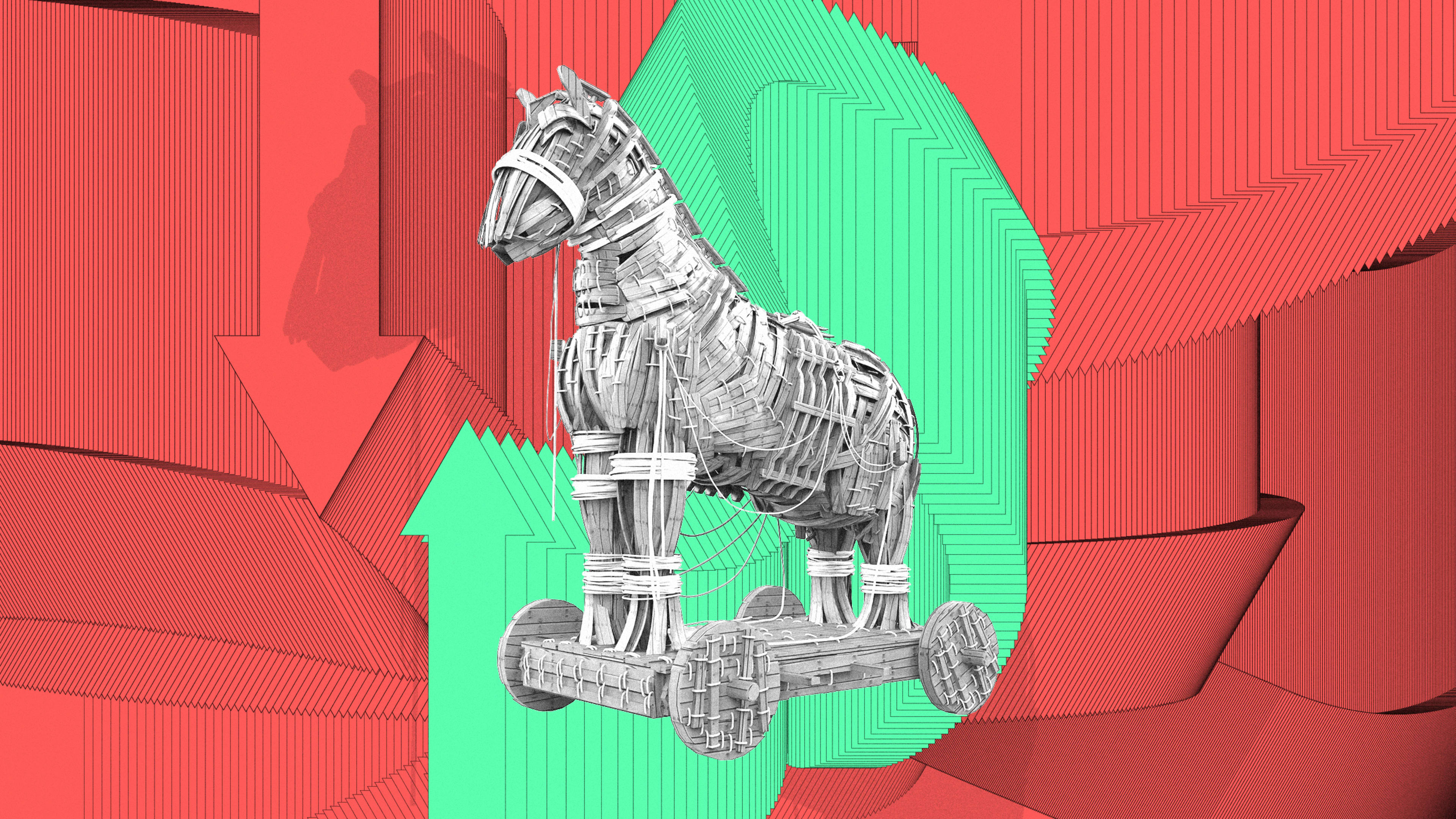Capitalism has had a pretty good run. Just ask Buffett, Bezos, Zuckerberg, and the Koch family. They, like the Vanderbilts, the Rockefellers, the Rothschilds, and the Gettys before them, have benefited from an economic system that brands winners and losers with green arrows pointing up and red arrows pointing down.
On a global scale, when it comes to accumulating nearly unfathomable wealth, a very small number of people’s arrows have pointed up, whereas more than half the planet’s population have arrows pointing down.
But the tides are shifting. Calls for a new economic model—one that closes the inequality gap and aligns with social good movements, such as the UN’s Sustainable Development Goals (SDGs)—are ringing from the campaign trail in Des Moines to the Alpine peaks of Davos, where the 50th World Economic Forum takes place this week.
Enlightened CEOs know that these reform-minded calls for change have to be answered, and that the current model of capitalism is unsustainable. They also know that they can’t make empty promises: Siemens’s Joe Kaeser demonstrated in recent weeks how PR disasters can occur when CEOs overcommit on societal topics yet underdeliver. The question that remains for these executives, then, is how do we move from announcements into action?
There is a path forward: More and more companies are using their resources, expertise, and assets to develop new ways to take on social or environmental problems—solutions with a business model at heart. The solutions are driven by dedicated employees who take on an entrepreneurial role within their company. These “social intrapreneurs” don’t answer to shareholder metrics—they are, with the CEO’s blessing, creating social businesses, which are 100% focused on solving a societal problem and reinvesting profits.
My first exposure to social business occurred about a dozen years ago. My then-position as business consultant had groomed me for a profit-at-all-costs mindset, but then I heard the father of microcredit, Muhammad Yunus, speak about an astonishing new venture that his Grameen organization was launching with global food giant Danone. They were creating the most affordable and nutritious yogurt that Danone had ever produced, specifically to alleviate malnutrition in Bangladeshi children. Almost immediately, I went to Bangladesh to observe social business with my own eyes.
Saskia BruystenI was inspired by this idea of using the might and knowledge of corporate giants to solve real problems.”
I saw that it was indeed working for the target demographic: the nutrient-enriched yogurt led to a statistical reduction of stunting in its malnourished young consumers. But those eating the yogurt were not the only winners: I also learned from Danone employees that this initiative had many other unintended benefits for Danone itself. The R&D department, accustomed to focusing on affluent Westerners, had never before been tasked with developing a product for the world’s poorest. The new effort yielded a product with a much longer shelf life for unrefrigerated Bangladeshi shops, a corn-starch cup to avoid plastics waste, and a new formula to mask the unpleasant taste of healthy iodine. This flurry of reverse innovations was easily transferred to the core business.
I was inspired by this idea of using the might and knowledge of corporate giants to solve real problems—as well as activating social intrapreneurs inside those corporate giants as soldiers in a Trojan horse, who could help transform the company as a whole. A decade ago, though, my ability to interest my corporate contacts in this still-experimental field was unsuccessful.
To observe whether, 12 years later, the appetite for social intrapreneurship (SI) in general and for social business specifically has grown, the team at Yunus Social Business (YSB)—together with partners at the WEF’s Schwab Foundation, INSEAD, and Porticus—launched an ambitious study last year, the results of which will be unveiled in Davos this week. We were able to identify more than 200 SI initiatives and interview more than 50 social intrapreneurs at such blue-chip giants as IKEA, Accenture, BASF, Renault, and SAP.
The study bears out our original hypothesis: SI initiatives can help companies use their core business to benefit the world, and yet themselves enjoy increased innovation (50% of interviewees reported such increases) and employee motivation and improved skill sets (77%).
This is a welcome discovery, because it shows a positive trend, in which some corporations are moving into action—but is it enough? We are just 10 years away from what the scientist-authors of the UN’s 2018 IPCC report concluded was devastating, irreversible damage to the planet, unless we could make drastic changes to our business as usual. And while the number of SI initiatives has ballooned significantly in the last dozen years, the results are still just a drop in the ocean—it won’t make a real difference until the companies’ entire core businesses change.
What is encouraging is that SI does seem to lead to company transformation: 60% of the respondents said that a concrete example of social business in their company changes mindsets and kicks off a more fundamental transformation, particularly in the urgent social and environmental sectors. Witness Danone, which is now the first corporation to be a certified B Corp. Novartis now includes nonfinancial metrics in their management evaluations. And Covestro now actively includes the SDGs in its nonfinancial goals and assesses its R&D portfolio partially on SDG indicators.
As for obstacles, interestingly, 80% of interviewees noted that the biggest hurdles they faced in achieving success were internal, not external. So the Trojan horse that can transform the business of the future has been built. Now, we just need c-suite executives, shareholders, and investors to open their gates so social intrapreneurs can get their horses inside the corporate walls.
Saskia Bruysten is the cofounder and CEO of Yunus Social Business.
Recognize your brand’s excellence by applying to this year’s Brands That Matter Awards before the final deadline, June 7.
Sign up for Brands That Matter notifications here.
